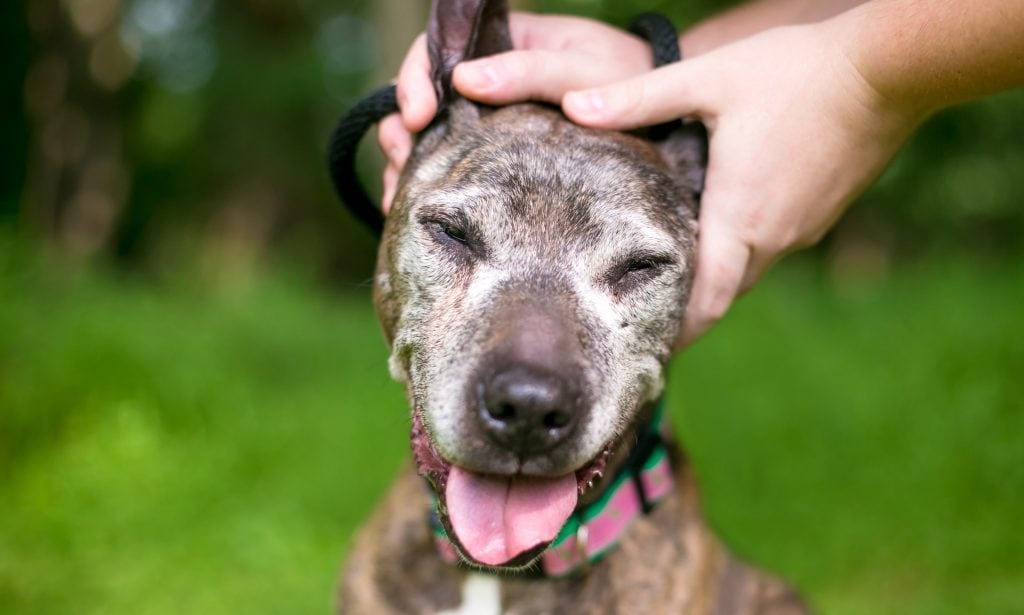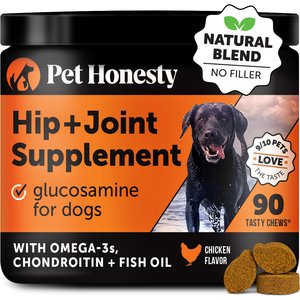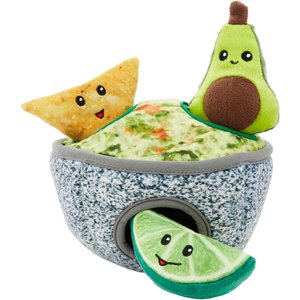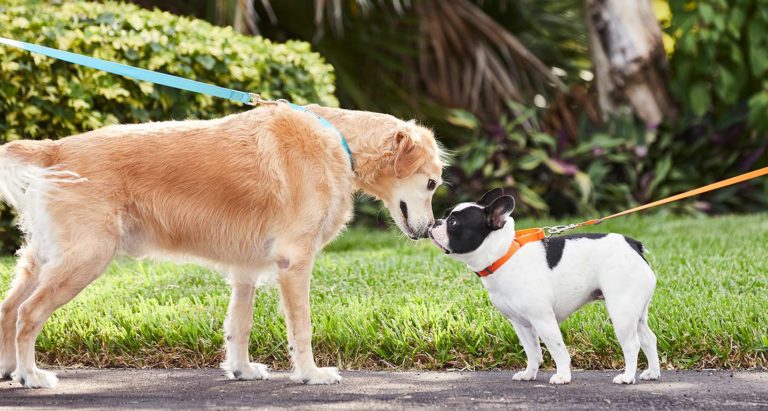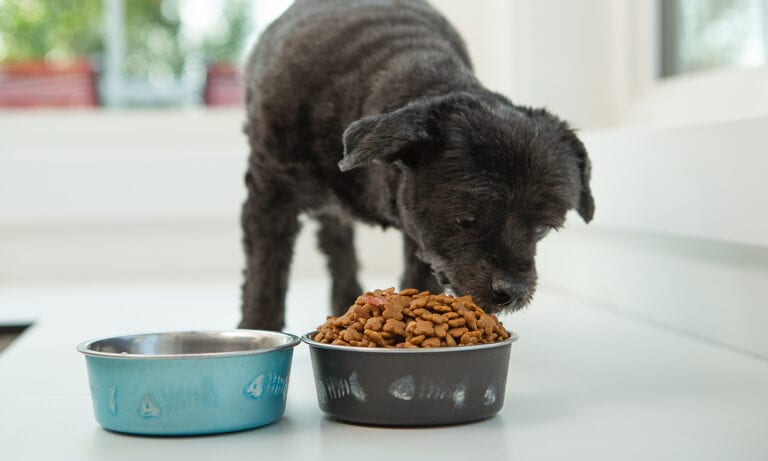Thanks to preventative medicine and better veterinary care, our pooches are living longer than ever before. Just as with humans, senior dogs experience age-related conditions and challenges as they get older, and new needs will emerge over time.
Our loyal, happy senior dogs can develop many of the same physical problems that humans experience as we age, such as heart disease, diabetes, vision problems, joint issues, and weakness. You might also notice behavior changes such as confusion, increased vocalization, more anxiety, changes in sleep cycles, and house soiling.
Sometimes we notice the signs of aging in our doggos: Their favorite game of catch might feel too strenuous; they may not be able to jump up to their favorite seat by the window; they can’t hear us calling them in for dinner. Armed with knowledge about senior dog care, you can ensure your pup has the best quality of life during their senior years.
1Double Up on Vet Visits
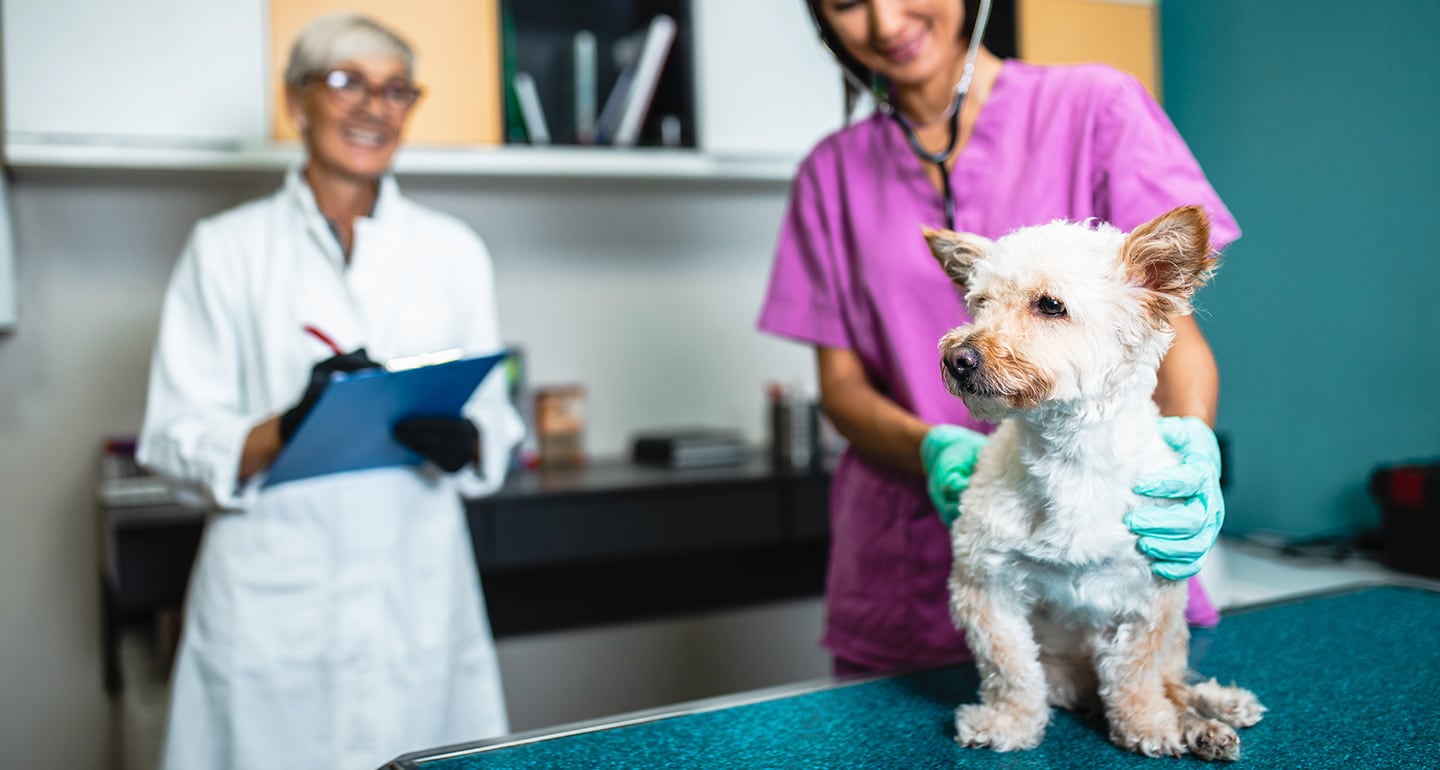
The American Animal Hospital Association (AAHA) recommends we take our four-legged seniors to the vet every six months for checkups. Early detection of health issues is crucial, especially in aging dogs.
During these semi-annual checkups, your vet conducts a full wellness exam, during which they look for any concerning lumps, listen to the dog’s heart, and evaluate hearing and eyesight, says Tonya Wilhelm, a Toledo, Ohio-area dog trainer and founder of Raising Your Pets Naturally.
Additionally, bloodwork and urinalysis can be done to assess the dog’s overall health and monitor any chronic conditions he may be receiving treatment for.
2Keep Your Senior Dog's Physical Limitations in Mind

You might find that your older dog has developed a few new health issues they didn’t have when they were younger. As a result, everyday tasks have the potential to become new hazards.
“Many senior dogs have decreased hearing, vision and mobility, so make sure the environment is safe,” says integrative veterinarian Judy Morgan, DVM, CVA, CVCP, CVFT.
Consider these simple steps to keep your dog safer:
- Block off stairways so your dog can't fall while using them.
- Remove large furniture items from main paths so it’s easier for a vision-impaired or unsteady senior pet to navigate.
- Avoid moving furniture around and re-arranging the house because that requires senior dogs who may have experienced some degree of vision loss to learn new pathways.
- Watch your step! If your pet is small and cannot hear you coming, it could result in a nasty fall for both of you.
- Use carpet runners or rubber mat runners where appropriate. “Slippery floors are a nightmare for dogs with mobility issues,” Dr. Morgan says.
- Provide dog steps or ramps for dogs experiencing vision or mobility issues. They make it much easier and safer for your pooch to reach their favorite places. Be sure to train your dog to use the ramp or stairs to avoid frustration and potential injuries.
3Help Your Senior Dog Maintain a Healthy Diet
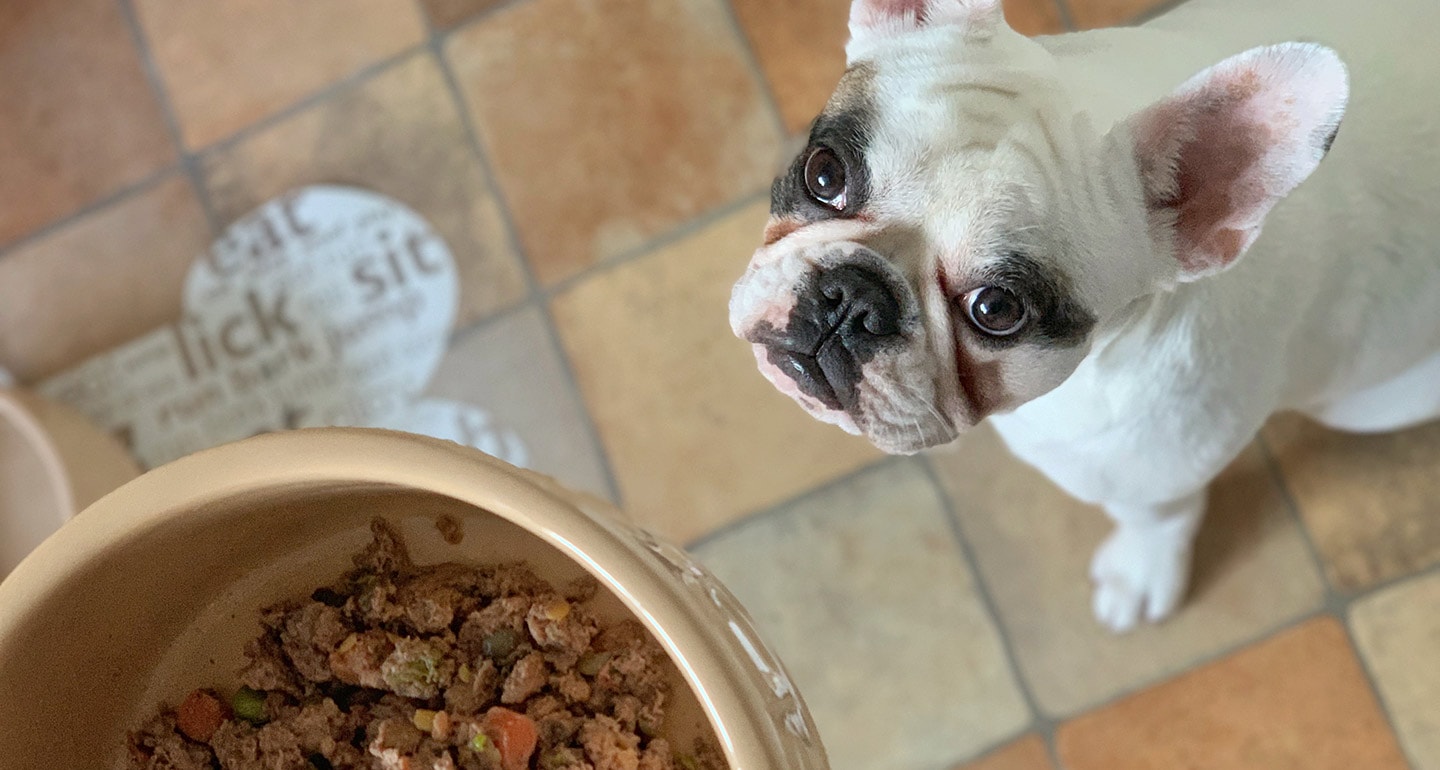
The dog food (and safe human food) you provide for your pup matters. While we might be tempted to fudge our senior dog’s diet, maintaining balanced nutrition with high-quality ingredients is one of the best ways to love them.
Dogs can experience weight gain just like humans, and obesity shortens a dog’s lifespan and increases their risks of developing diseases. Feeding the appropriate amount of dog food and refraining from offering too many treats or table scraps can prevent unnecessary weight gain.
Fat cells actually produce hormones that lead to increased inflammation in the body, leading to more pain, Dr. Morgan explains. “More pain means more lethargy, which means more obesity. It's a vicious cycle.”
You should continue your pet’s healthy kibble or wet food diet—or consider switching to a senior dog food with your vet’s input—but Dr. Morgan says that whole foods are extremely beneficial to your senior dog’s health. She offers these whole food tips:
- Foods with omega-3s, such as fish, fish oil, and egg yolks, are very healthy.
- Homemade bone broth for dogs is great for bone and joint support.
- Digestive enzymes and probiotics can aid in digestion and nutrient absorption.
- Pumpkin increases fiber and can help with occasional bowel issues, including constipation and diarrhea.
- Steamed or gently cooked dark greens—such as kale, broccoli, or spinach—or dried dandelion root can be used as food toppers. They offer extra nutrition for senior dogs who are prone to anemia. Plus, these foods are a good natural source of vitamins.
You can also consider supplements. For senior dogs, Dr. Morgan suggests giving them a boost with joint dog supplements, like glucosamine, chondroitin, MSM, vitamin C, and omega-3 fatty acids, for brain, skin, and joint health. However, your vet can recommend the best supplement for your dog.
4Cater to Your Senior Dog’s Aching Joints
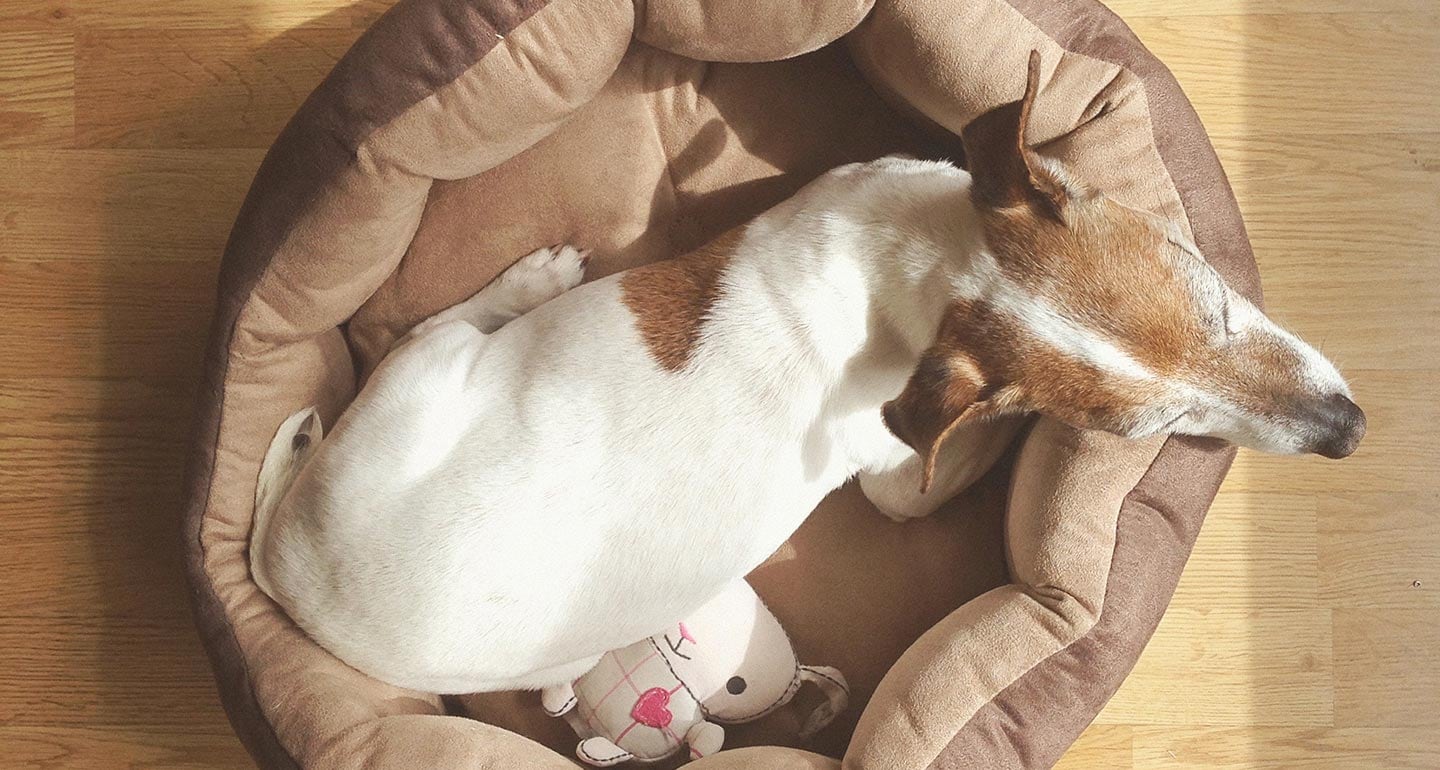
A common issue for older dogs is arthritis. Aside from dog supplements and medications, there are other things you can do to help relieve joint pain. Consider these suggestions, per Dr. Morgan:
- Keep dogs warm. Placing warm towels from the dryer over sore joints can be very soothing.
- Massage them. Beyond feeling great, massages for dogs help keep muscles soft and supple. Plus, they help increase blood flow to muscles and joints.
- Try acupuncture. Acupuncture, a staple of traditional Chinese medicine, can provide pain relief for dogs.
- Consider chiropractic adjustments. Chiropractic adjustments can help counteract the stress arthritis can put on the spine.
- Ask your vet about cold lasers. Cold lasers increase circulation and provide pain relief.
- Replace their bed. Comfy beds help make for happy senior dogs. If your dog seems cold—perhaps they’re often burying themself under blankets or sleeping by the heat vents—a warming bed, like K&H Pet Products® Self-Warming Two Tone Lounge Sleeper Bolster Bed, is a great option. For notably larger dogs who need joint support, such as Great Danes, try an orthopedic bed, like FurHaven™ Ultra Plush Luxe Lounger Orthopedic Bed.
Temporarily out of stock
5Keep Your Senior Dog Active, but Don't Overdo It
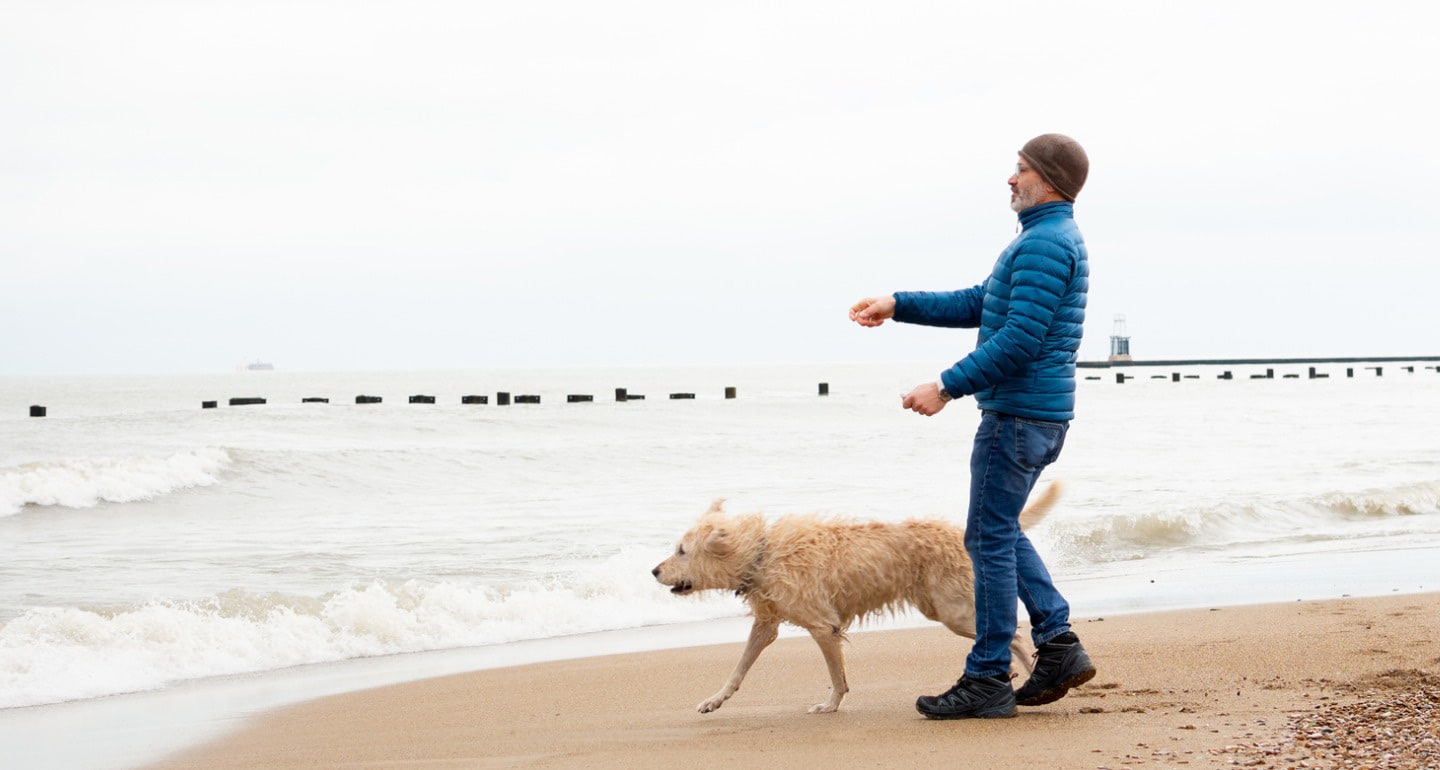
Slowing down is a natural process with age. You’ll see your dog’s energy level decrease, and as a result, you might need to coax your four-legged friend to exercise.
“Muscles support joints,” Dr. Morgan says. And without good muscle tone, mobility decreases drastically. “This is why pet physical therapy has become so commonly used. Joints in motion stay limber; joints not in motion get stiff.”
Make adjustments to your long-standing exercise routine:
- If you and your pet used to go for runs, a leisurely stroll may be more their speed now.
- Mix it up to keep things mentally interesting as well. Try a new toy, alternate between swimming and the dog park, or change up the route around the neighborhood.
6Watch Your Senior Dog More Carefully
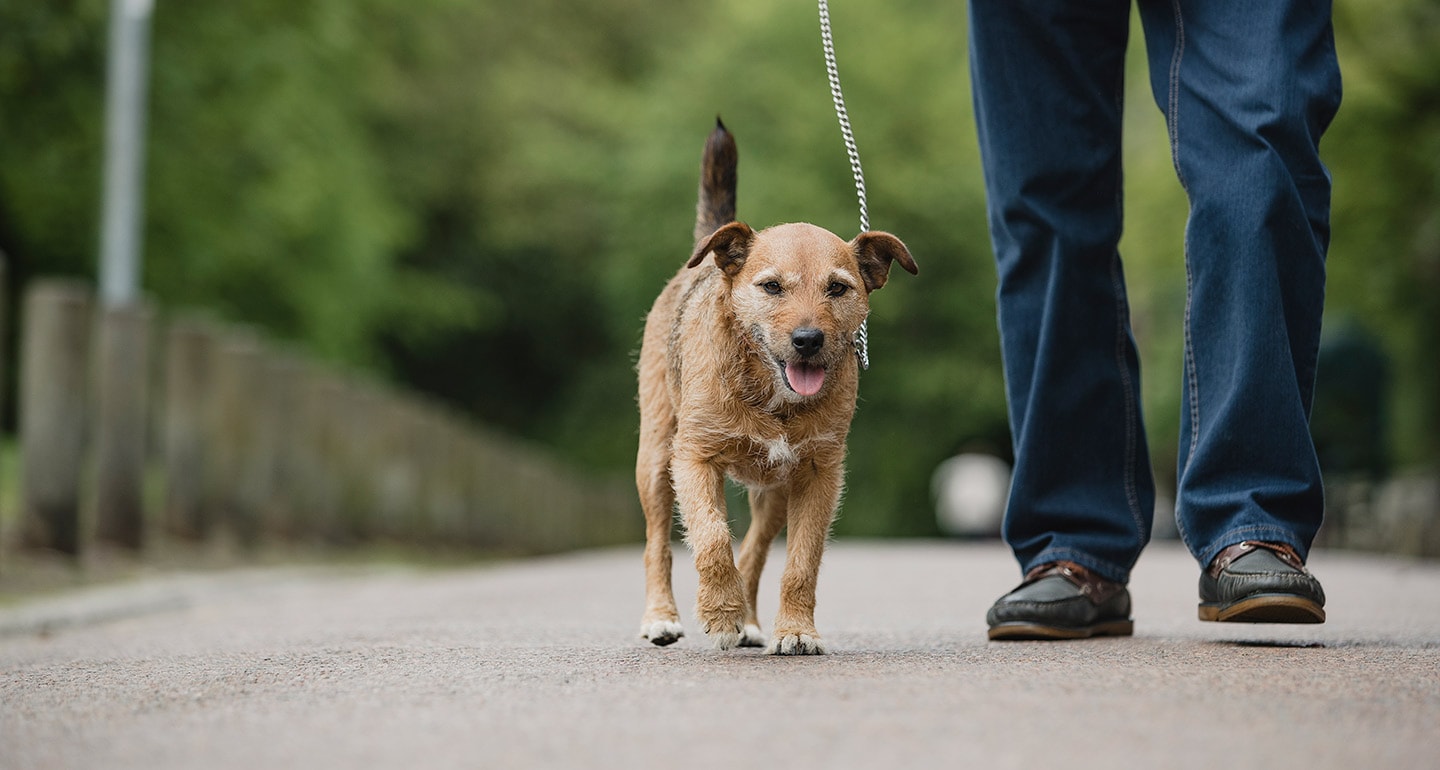
You may be used to letting your dog out in the backyard on their own, but as they age, they might need you to keep an eye on them while outdoors. For example, consider how vision or hearing loss could affect your dog’s ability to stay safe.
“Dogs with decreased hearing and vision may get [confused], wander from the yard accidentally, and not be able to find their way home,” Dr. Morgan explains.
At this stage of life, to have happy senior pets, we need to manage environments more by offering support. For example, an older animal also may have trouble holding their bladder and need more potty breaks. If you must leave your senior dog at home for longer lengths of time, you may want to consider enlisting the help of a friend or dog walker for potty breaks while you’re away.
7Give Your Senior Dog Extra Grooming Sessions
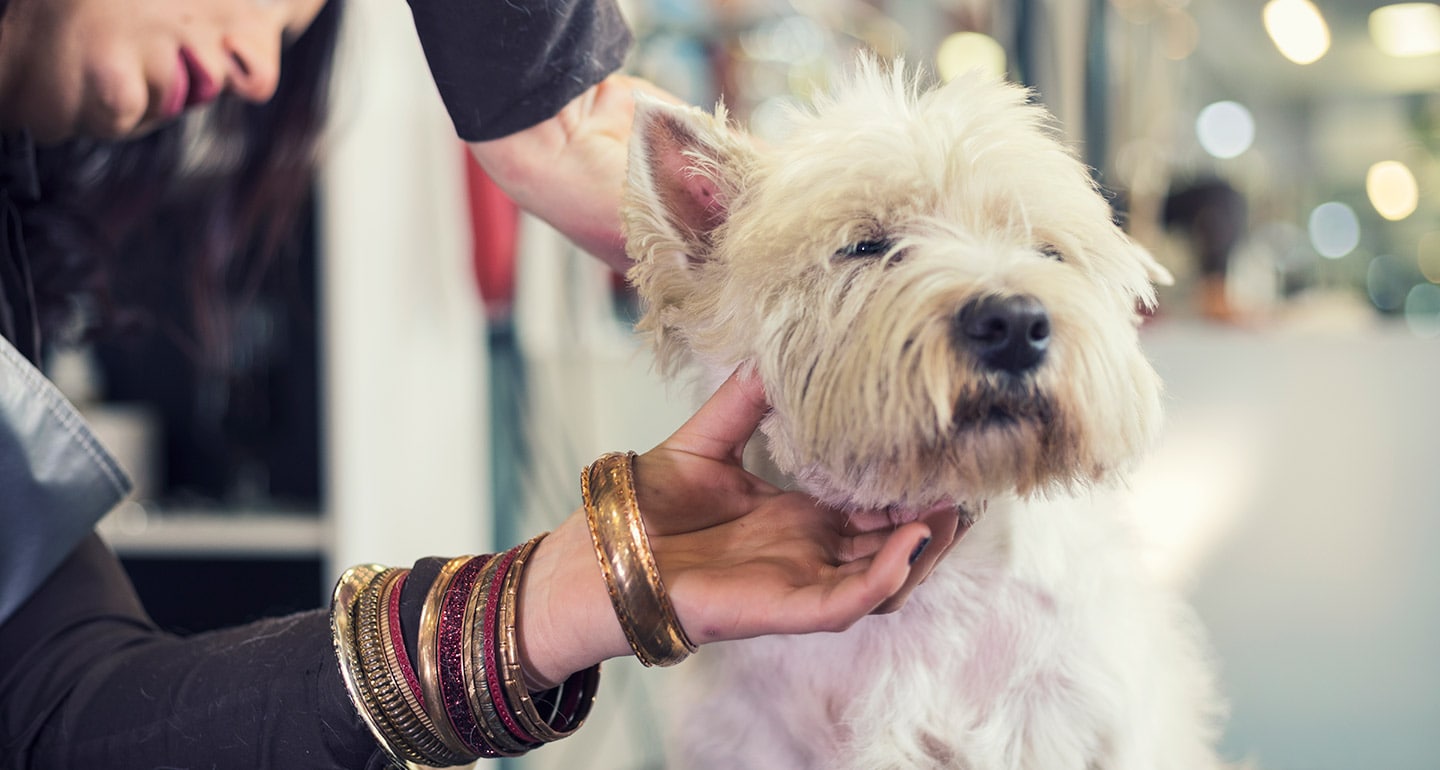
Regular grooming is important as dogs age because they can develop more matting with less activity. Plus, senior dogs can start to struggle to reach all areas on their body, therefore not grooming themselves as much.
Here are some grooming tips for senior dogs:
- Clip the hair in their potty area short and check the area daily to ensure the area is clean, dry, and not irritated. This is especially important for incontinent senior dogs.
- Brush daily to keep the coat oils spread throughout the coat.
Check for new lumps, bumps, cuts, scrapes, or irritation.
8Take Care of Your Senior Dog's Teeth
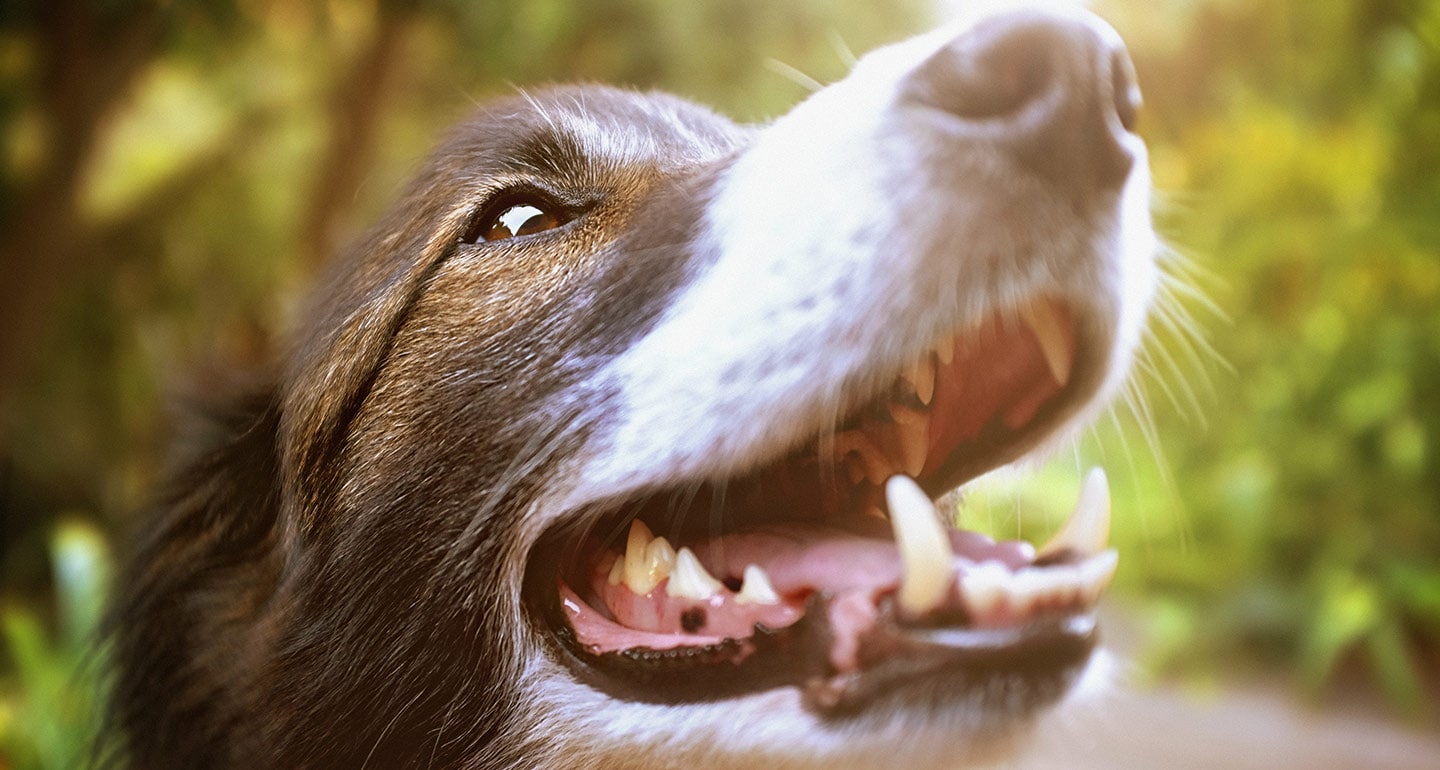
Dogs’ teeth become more sensitive and prone to infection as they age, and infected teeth can increase the risks of heart disease and kidney disease, according to Dr. Morgan. So, it’s important to pay special attention to their teeth.
If pet parents have not taken good care of doggy dental health before now, their dogs often suffer with loose, infected teeth in their senior years.
“Periodontal disease is very common,” Dr. Morgan says, “just as we see in aging people.”
Here are some tips for caring for your senior dog’s teeth:
- Brush your dog’s teeth with a dog toothpaste.
- Bacteria can hide in plaque and tartar. Look for dental products that carry the VOHC Accepted seal to help reduce plaque and tartar.
- Professional dental cleaning is imperative if there are any loose or infected teeth, “These teeth are very painful, even though lots of dogs don't let on that they are suffering,” Dr. Morgan says.
9Give Your Senior Dog a Social Life
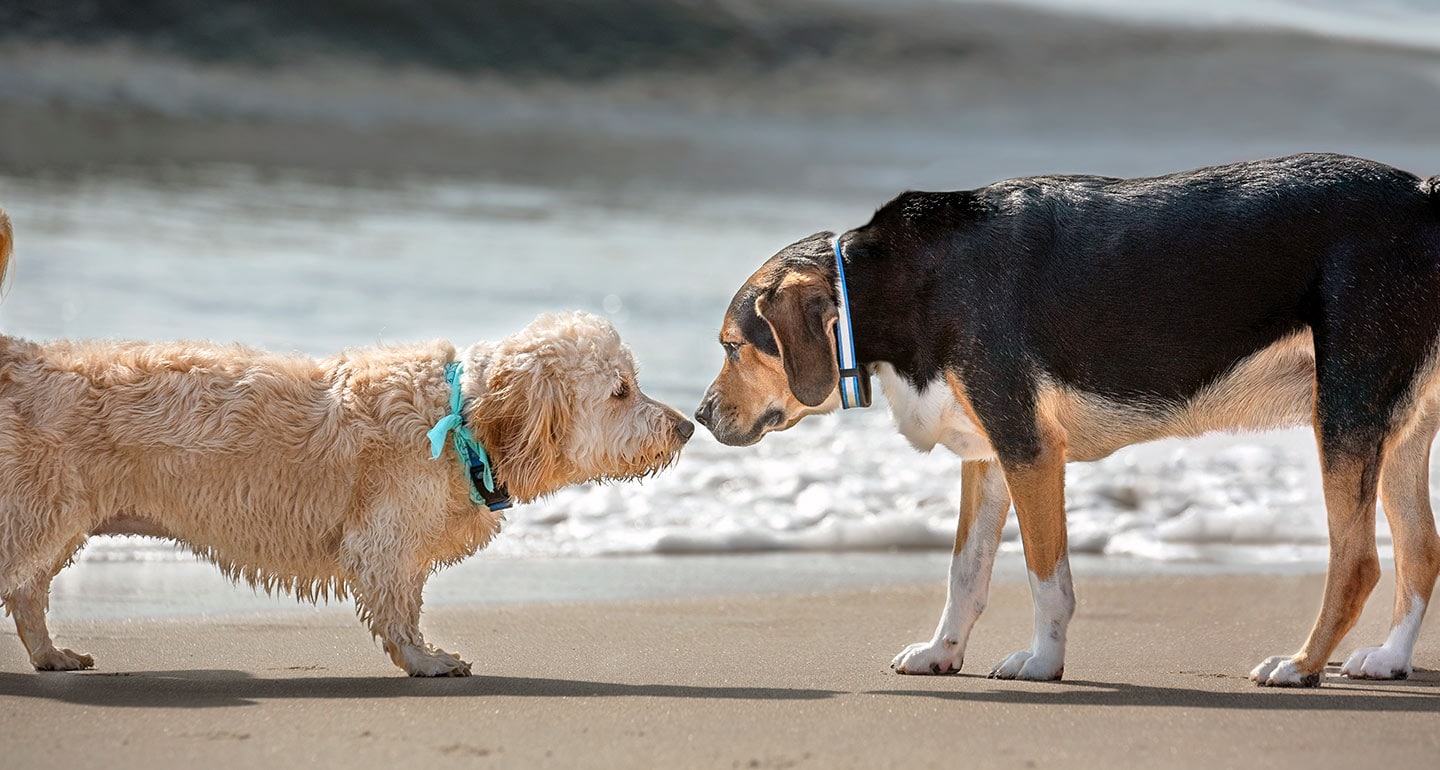
Dogs love to be with their humans, and many enjoy other pooch playmates, so if your dog has always loved company, consider putting play dates on your calendar. Just remember to pay attention to your senior dog’s level of tolerance for younger, more energetic dogs that may be encroaching on their personal space.
Don’t automatically rule out a more energetic younger pal, however, as some older dogs can become more active when around a spryer pup. But do honor your dog’s social habits and get to know what your canine companion does and does not enjoy in this new season of life.
10Take Your Senior Dog on Special Outings

Has your dog always loved car rides? Don’t stop taking your doggo in the car simply because they’re aging. If your dog is still comfortable in your vehicle, keep that fun outing in the rotation. And don’t underestimate the value of oldies but goodies, like a short walk around the block.
Additionally, that saying about not being able to teach old dogs new tricks? Forget about it. Sometimes older dogs enjoy learning new things. Look into positive dog training classes and ask the trainer about working with your senior dog. A weekly training class may become a real bright spot for your dog and help increase their quality of life.
11Keep Your Senior Dog's Mind Sharp
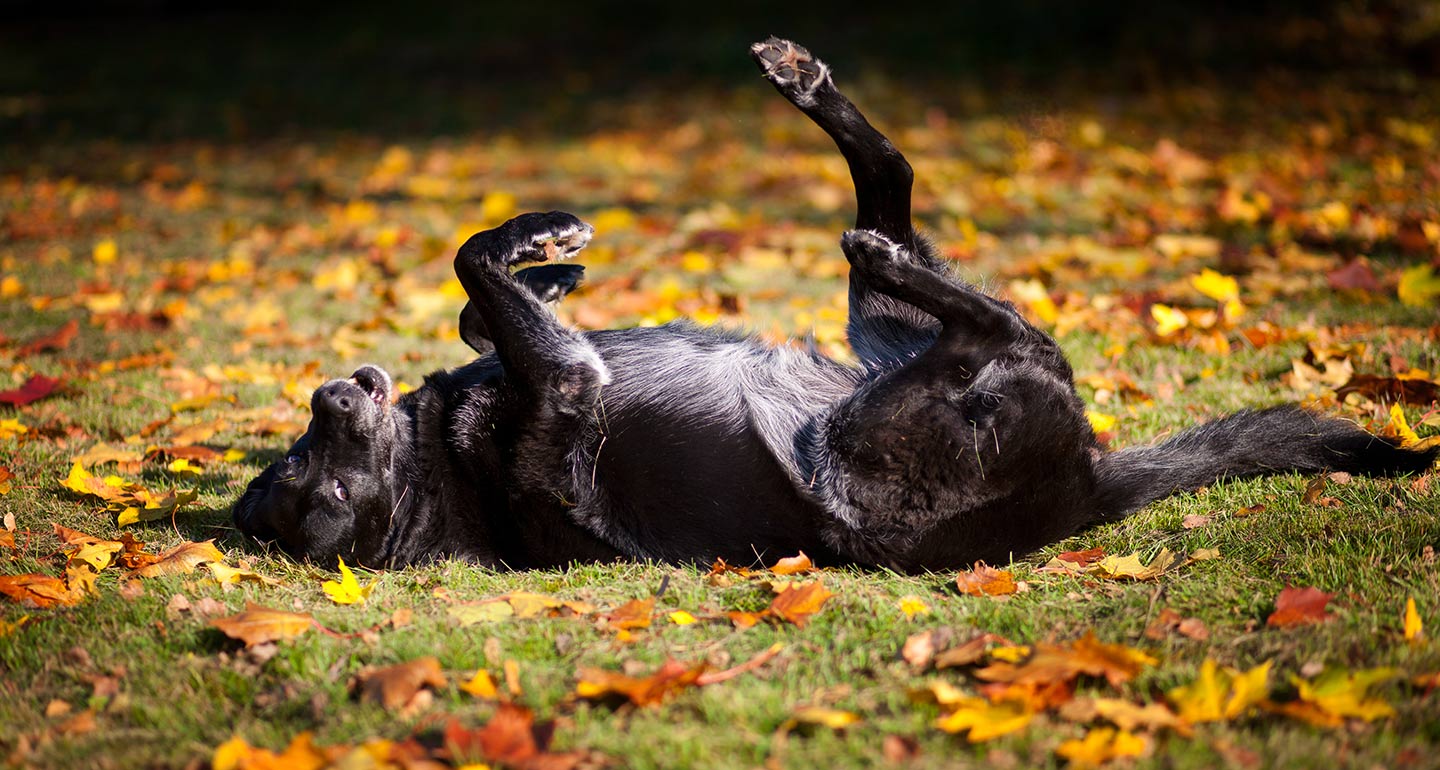
To keep your older dog’s mind sharp, you can play dog-friendly brain games with them. For example, you can hide treats around the house and instruct your dog to sniff them out.
These types of games offer great mental stimulation. Some senior dogs suffer from cognitive dysfunction and may need vitamin or nutritional support.
Puzzle toys and mats are excellent options to challenge their minds. Despite their advancing age, you can encourage your dog to work, just within their new limitations.
“Enrichment sessions—sniff around the property or at appropriate dig spots or a sand box—are great to help tire them out, give them a nice outlet, and benefit them,” says Francine Coughlin, CPDT-KA, IAABC, owner of Bark n’ Roll in North Reading, Massachusetts. “Whatever lets them be dogs—foraging, hunting, tearing apart something fun—still are great activities for senior dogs. It keeps their doggy instincts sharp.”
12Show Your Senior Dog Lots and Lots of Love
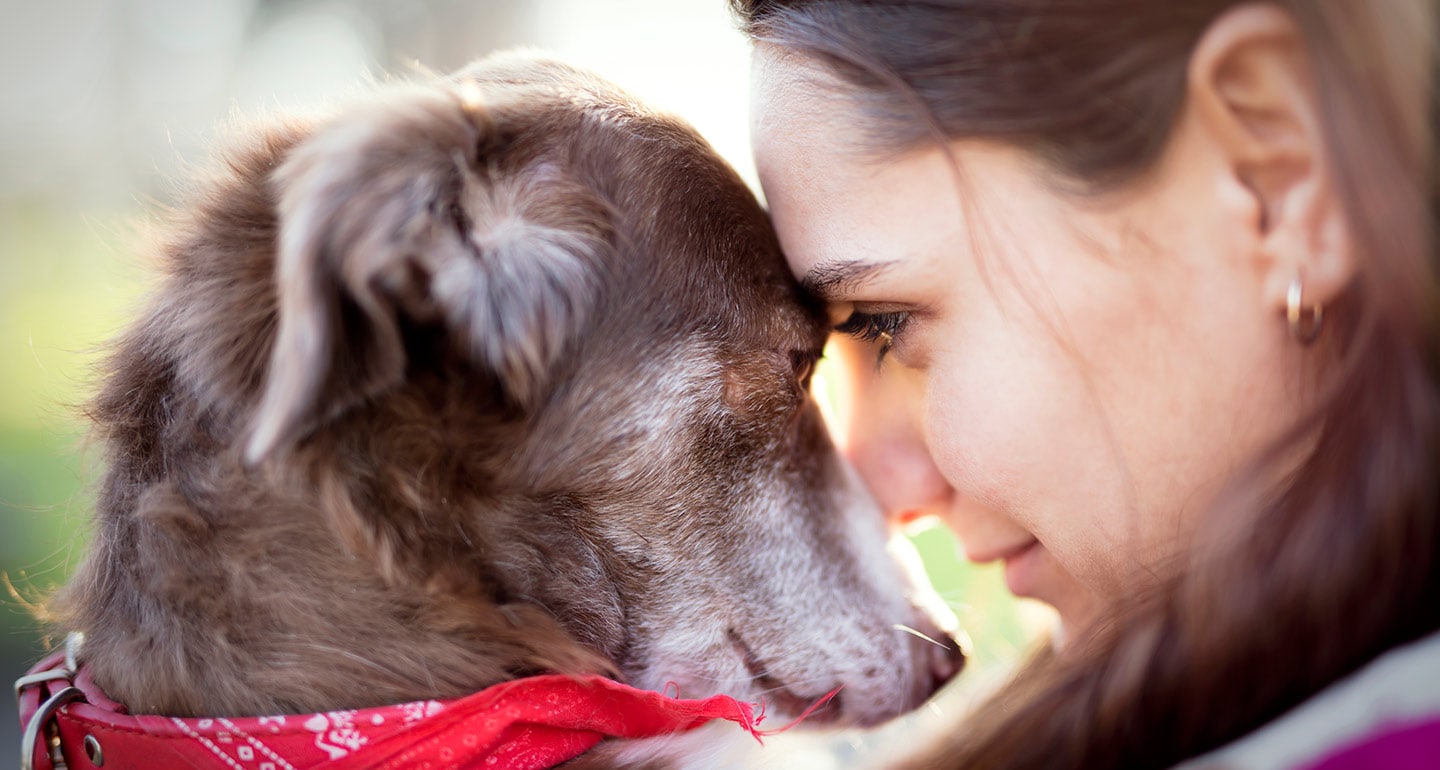
Think about the unconditional love your older dog has shown you over the years you’ve spent together—and do your best to return it tenfold. Your love is free and can be given in abundance, but it’s priceless to your pup.
Special time together, even if it’s just cuddling on the couch, is what our happy senior dogs cherish most. And, fortunately, that’s very simple for us to deliver!
When Is My Dog Considered a Senior Dog?
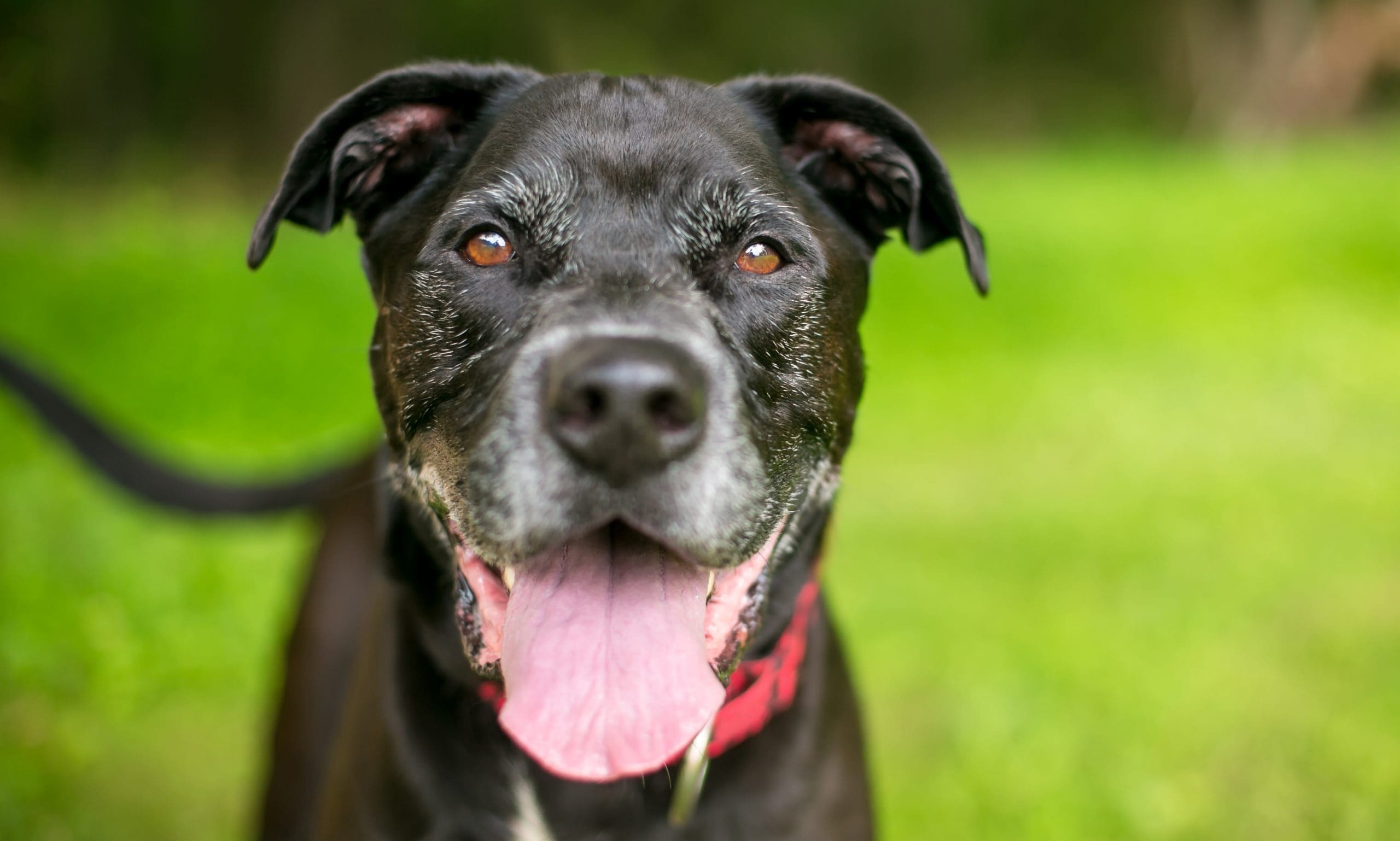
The age a dog becomes a senior depends on their size. The following parameters will help you determine when your furry friend has entered their golden years:
- Between 10–12 years old for smaller dog breeds
- Between 8–9 years old for medium breeds
- Between 6–7 years old for large breeds
Now that you’re rich with ideas about how to keep your senior dog happy and healthy, you can continue to enjoy your bond with them for years to come.
Caitlin Ultimo and Laura Willard contributed to this report.
This content was medically reviewed by a veterinarian.
More on senior dogs and caring for them:
Share:
